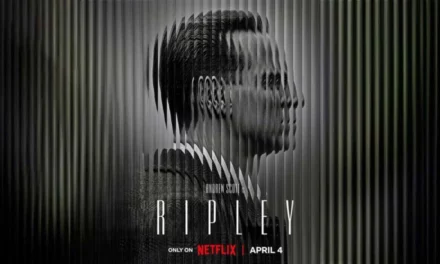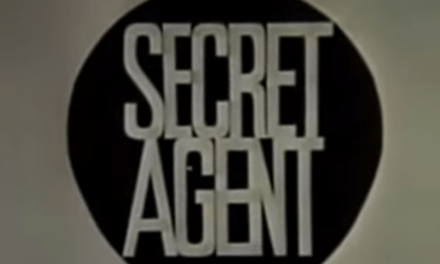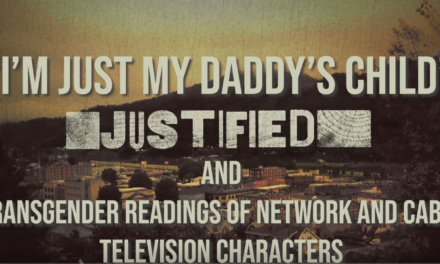Towards the end of April — into what we can now call Lockdown 1.0 as Ireland has recently entered Lockdown 2.0 (The Remix) — the smash hit Normal People was unleashed onto Irish screens. The BBC/Hulu production, based on the best-selling novel by Sally Rooney, was released all at once in the UK and the US a few days earlier making it prime binge watch material. But in Ireland it was released onto RTÉ week to week and became something that one may have thought was long extinct: event television. For lack of anything better to do Irish people watched together the story of Marianne and Connell’s fraught romance.
For my own part, I didn’t really get it. I couldn’t quite understand everyone’s fascination with a couple who could not speak more than three words to each other without a fight erupting. But I watched, nonetheless. Mainly, I watched to get a glimpse of Trinity College, a place that I missed dearly. Though the college was within my 2 km radius, the doors of front gate — which I had passed through most days for 4 of the last 5 years — were firmly closed to me and the rest of the world.
But as time went on, I realised I may be watching something much more important than two insufferable teenagers fighting in the backdrop of Trinity’s front square. Rather, I was watching my own work in action in real time. In the days that followed the release of Normal People, I noticed that the discourse that began to surround the new programme was eerily reminiscent of the discourse I study that surrounded Irish television programmes in the 1960s and 70s.
It started on Liveline, an Irish call-in radio show, hosted by Joe Duffy. When Joe opened a discussion about Normal People, his first call was from a woman who said of the programme: ‘Well I imagine it was something you’d expect to see in a porno movie. Certainly not for family viewing.’ She added, ‘I am sure a lot of parents were mortified’ watching the programme with their children. [i].
Joe Duffy fired back with the line heard around the nation: ‘What would you see in a porno movie, Mary?’
A man called in next to complain that ‘It’s giving the wrong message to young people and it’s no wonder there’s so many crisis pregnancies.’
He continued: ‘It’s morally wrong, it’s fornication, it’s the national broadcaster promoting fornication.’
Twitter exploded with #liveline tweets pouring in to express counter outrage at the rhetoric of the participants. Whose Ireland was this? Surely the nation that voted for marriage equality in 2015 and abortion rights in 2018 had progressed from this?
Joe Duffy let one of his participants know about the stir he was already causing on social media. He let him know that ‘people are saying on Twitter go back to the sixties’. And this is exactly where my own mind went.
While the Liveline participants of course represented a small subset of the Irish population, their thoughts very much mirrored those I’d seen in my own studies of the sixties in Ireland. Particularly on one programme called Southside. The programme aired for 2 seasons in 1969 and 1970. It centred around a few families in the Cork suburbs whose exploits many Irish people found salacious and outlandish. It tackled topics such as adultery, premarital sex, and abortion. It also featured the first mini skirt on Irish television.
When the programme aired, it was a smash hit, much like Normal People. It quickly became the most popular show on RTÉ. But it similarly riled a specific subset of the Irish population. And, luckily for this television researcher, the outraged letters from many Southside viewers have been miraculously preserved in the RTÉ Document Archive.
They include gems such as the woman who wrote in to complain about the programme who urged RTÉ to ’COP ON!’, ‘GROW UP’, and finally to ‘PLEASE DO SOMETHING ABOUT THIS TERRIBLE PROGRAMME. IT IS VERY DEGRADING.’[ii] as well as the woman who addressed her letter simply to ‘People who ought to know better.’ [iii]

Fig. 1: Letter from the audience. “Signed: DISAPPOINTED.” Source: RTE Document Archives, Southside papers.
But importantly many of these letters could have been pulled straight from the mouths of Liveline participants. Despite airing nearly 50 years apart, complaints about both shows largely centred around moral outrage couched within a concern for the family.
One woman wrote to the Irish station asking that they ‘Please help us to bring up our children decently.’[iv] A doctor from Athlone wrote in to say that ‘One worries for our children. Young people are so impressionable.’ [v]
Many of the letters centred around concepts of what qualified as ‘family viewing’. One woman from Cork wrote to say that the programme was ‘distasteful, embarrassing, and completely unsuitable for family viewing.’[vi] Another woman from Dublin suggested that RTÉ ‘employ some decent married people who could put you wise on what is “family viewing”’. [vii] In this way she sounds quite like the man who suggested that Normal People airing on RTÉ was tantamount to the network ‘promoting fornication.’
Perhaps those calling into Liveline were the last remnants of this Ireland. The one that could not stomach a woman in a mini skirt on the telly. Or perhaps this type of person, the outrage addict, is just a universal figure across time.
Either way, the most prominent similarity between the two sets of viewers might be that as much as they were outraged, they were not turning off the TV. The extent to which Liveline participants were able to describe the events of the second episode of Normal People indicates that despite their outrage they likely watched the whole thing. In regard to Southside, letter writers seemed to be equally familiar with the programme they described. Many of them were writing to the station many episodes into the show’s first season with very detailed information about objectionable plot points.
One woman who wrote in a full 6 weeks into the series probably demonstrated this phenomenon best. She called Southside ‘the most embarrassing programme’ she had ever watched. But she openly admitted that ‘After every showing I decide “never again” but, unfortunately, last night I again sat through it.’ [viii]
Her comments pinpoint the conundrum of the outrage addict over time. Perhaps some find programmes so detestable that they stop watching. But on the whole, most sit, blood pressure rising, transfixed on the thing that so outrages them. And this is likely to persist so long as television does, be it 1960, or 2020.
Morgan Wait is a fourth year PhD candidate at Trinity College, Dublin. She is currently working on a thesis entitled ‘An unspoken power’: Women and Irish Television 1958-73. This thesis explores the multifaceted relationship between women and Irish television during the long 1960s. Morgan holds a Cluff Memorial Scholarship from Trinity College, Dublin and is a current Fellow of the Trinity Long Room Hub. She also holds an M.Phil in Modern Irish History from Trinity College, Dublin and a BA in History from Salisbury University.
Endnotes
[i] Listen to this programme here: https://rte.ie/radio1/liveline/programmes/2020/0430/1135871-liveline-thursday-30-april-2020/
[ii] ‘Letter from Cork Woman 1 to RTÉ’, undated, (RTÉ Document Archives, Southside Programme Files, TV/P/SOV/1).
[iii] ‘Letter from Limerick to RTÉ’, 14 Oct. 1969.
[iv] ‘Letter from Limerick to RTÉ’, 14 Oct. 1969.
[v] ‘Letter from Athlone to RTÉ’, 10 Oct. 1969.
[vi] ‘Letter from Cork Woman 2 to RTÉ’, 11 Nov. 1969.
[vii] ‘Letter from Dublin to RTÉ’, 26 Oct. 1969.
[viii] ‘Letter from Cork Woman 2 to RTÉ’, 11 Nov. 1969.





